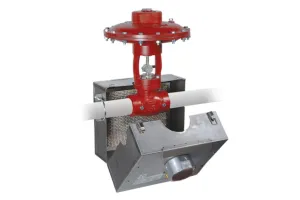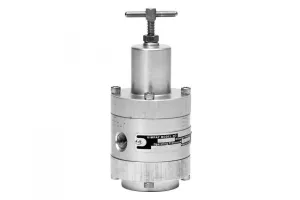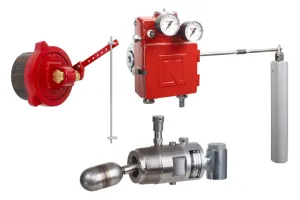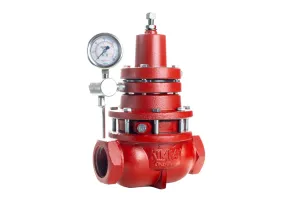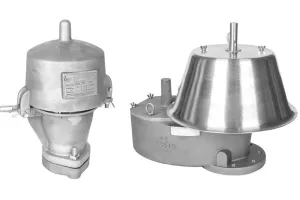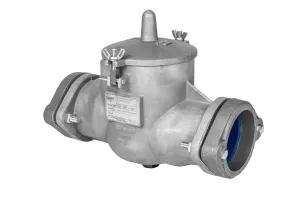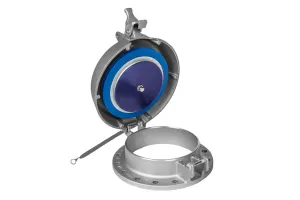PSI is one of the most commonly used unit of measure in the United States. Most household sporting goods—from basketballs to bicycle tires—use PSI as their air inflation measurement.
PSI stands for "Pounds per Square Inch."
In oil and gas operations, there are two other units of measurement you may come across that are more specific: PSIA and PSIG.
Definitions of PSIA and PSIG
PSIA
PSIA stands for "Pounds per Square Inch Absolute." Absolute pressure is pressure relative to zero or absolute vacuum. You may see PSIA used on engineering documents or P&IDs.
PSIG
PSIG stands for "Pounds per Square Inch Gauge." Gauge pressure is pressure relative to atmospheric pressure. Gauge pressure is what most gauges on your oilfield valves and equipment will show.
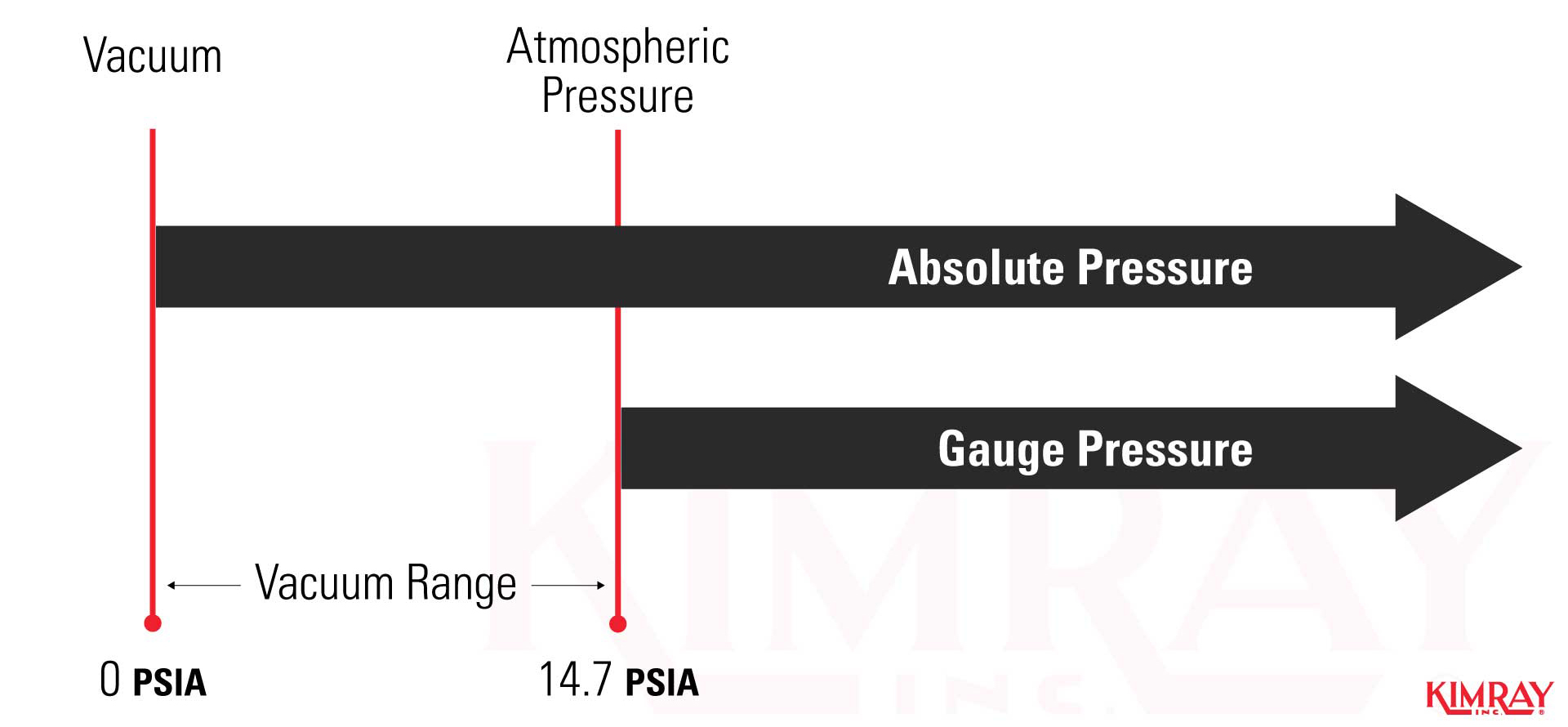
Do PSI and PSIG mean the same thing?
The answer is: sometimes.
PSIG is often the default meaning when a PSI unit is presented. For example, your tire pressure is gauge pressure. Likewise, the Kimray back pressure regulator’s gauge reads in PSIG.
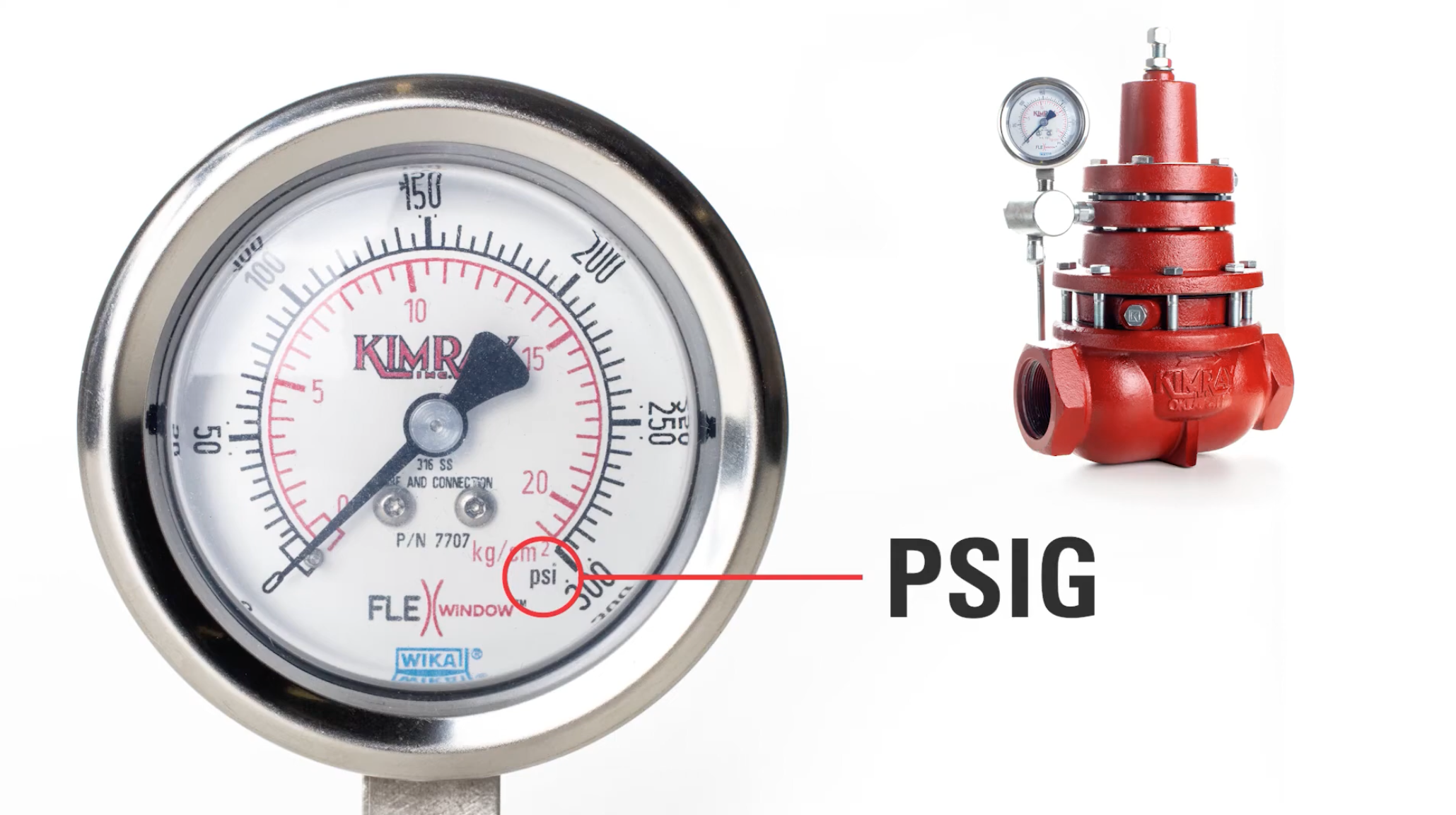
An example situation where this may come up is in valve sizing when using the Kimray Sizing Calculator.
If you are referencing a P&ID and it uses PSIA as the unit, you will need to convert PSIA to PSIG to size your valve or regulator appropriately.
Conversion from PSIG to PSIA
Is it possible to convert a number from PSI to PSIA? Or PSIA to PSIG?
You bet. The atmospheric pressure is all we need.
Again, the unit for gauge pressure is PSIG, and for absolute pressure is PSIA. You convert between them by adding or subtracting atmospheric pressure.
1 PSIG = 1 PSIA - atm
and conversely:
1 PSIA = 1 PSIG + atm
What is atmospheric pressure (atm)?
At sea level, the pressure of the atmosphere is 14.7.
While you may not be operating at sea level, unless you are at high altitude this is a good estimate to use. (Here's a helpful chart to determine atmospheric pressure at different elevations.)
Using sea level atmospheric pressure (14.7 = atm), this gives us the simple formulas to convert PSI:





